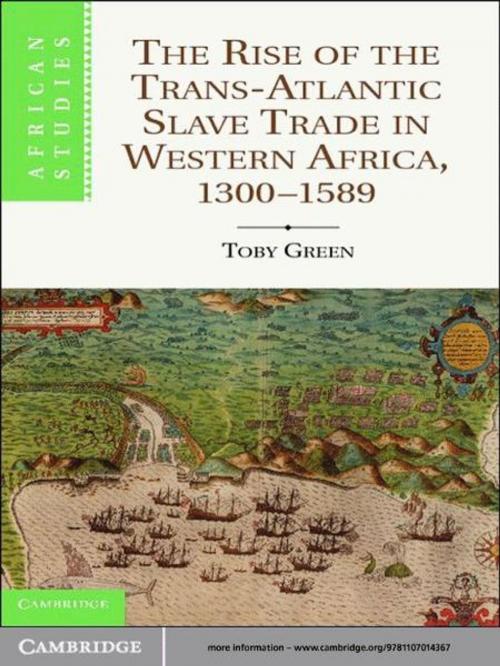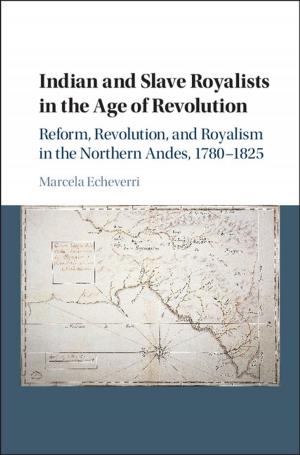The Rise of the Trans-Atlantic Slave Trade in Western Africa, 1300–1589
Nonfiction, History, Africa, Medieval| Author: | Toby Green | ISBN: | 9781139153102 |
| Publisher: | Cambridge University Press | Publication: | October 10, 2011 |
| Imprint: | Cambridge University Press | Language: | English |
| Author: | Toby Green |
| ISBN: | 9781139153102 |
| Publisher: | Cambridge University Press |
| Publication: | October 10, 2011 |
| Imprint: | Cambridge University Press |
| Language: | English |
The region between the river Senegal and Sierra Leone saw the first trans-Atlantic slave trade in the sixteenth century. Drawing on many new sources, Toby Green challenges current quantitative approaches to the history of the slave trade. New data on slave origins can show how and why Western African societies responded to Atlantic pressures. Green argues that answering these questions requires a cultural framework and uses the idea of creolization - the formation of mixed cultural communities in the era of plantation societies - to argue that preceding social patterns in both Africa and Europe were crucial. Major impacts of the sixteenth-century slave trade included political fragmentation, changes in identity and the re-organization of ritual and social patterns. The book shows which peoples were enslaved, why they were vulnerable and the consequences in Africa and beyond.
The region between the river Senegal and Sierra Leone saw the first trans-Atlantic slave trade in the sixteenth century. Drawing on many new sources, Toby Green challenges current quantitative approaches to the history of the slave trade. New data on slave origins can show how and why Western African societies responded to Atlantic pressures. Green argues that answering these questions requires a cultural framework and uses the idea of creolization - the formation of mixed cultural communities in the era of plantation societies - to argue that preceding social patterns in both Africa and Europe were crucial. Major impacts of the sixteenth-century slave trade included political fragmentation, changes in identity and the re-organization of ritual and social patterns. The book shows which peoples were enslaved, why they were vulnerable and the consequences in Africa and beyond.















